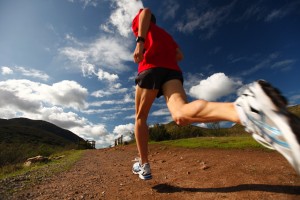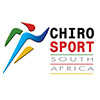Are there benefits to fasting before training?
If you are still unaware of who Professor Tim Noakes is, and more importantly, what he stands for, then you must be living the good life isolated from society, possibly with the Knysna forest hippies. So perhaps stop reading now… When the Banting diet was introduced to South Africans it had a dramatic snow ball effect and soon every South African became a dietitian overnight. It is for this exact reason that I’m not going to delve into the facts and flaws of Banting. Instead I’d like to introduce you to a new topic called ‘fasting and training’ vs ‘feeding then racing’.
What is intermittent fasting?
The basic concept behind The Fast Diet by Michael Mosley, MD, and Mimi Spencer is to eat normally for 5 days per week and eat very restricted calories on the other 2 days. That is not what this article is about either.
This article speaks to the positive effects associated with training without breakfast (kind of like fasting, since you haven’t eaten for close to 12 hours before exercise) vs the effects of training after having eaten breakfast.
But before I jump ahead, picture this, its winter…
Getting to the start of a ride, run or to the gym is said to be the most difficult part of training. I’m inclined to agree! Getting out of bed and putting on those cold socks can be an emotional ballet! And often the love we have for the sport does not prevail when it is zero degrees outside.
However, once you win the battle to get up and start your challenge, a few other elements start to play a vital role. Your diet. Particularly what you’ve had for breakfast. If you’re like me, you’ll have done everything by the book in order to avoid the infamous ‘BONK’, which is that emotional ballet, but on ice!
A quick look at the science
A basic look at what our bodies do when we exercise: When we exercise, our bodies use our reserves (these reserves can be fats, proteins or carbohydrates). Our bodies will convert these food sources into glycogen. Very basically, the muscles require glycogen to convert into ATP which is the energy we need in order to open the gates in the muscle to calcium which is where the contraction originates.
The quickest energy source without spiking your blood sugar is a complex, non-refined carbohydrate. Although you can run on fat, it takes longer for your body to convert it into the energy it needs to complete an exercise. Your body will need to sieve it through an extra system that uses more oxygen before it gives you the glycogen.
So Simply put, you will obtain the energy from fat and protein but at a much slower rate than the carbohydrate; which is immediate. As you can imagine, this process becomes even more important when you are in a race scenario, as you will need sustained energy throughout the race.
So what happens to us if we train before eating breakfast?
We have not eaten since dinner; let’s say at 8pm the previous evening. We therefore do not have an immediate supply of carbohydrate or fat. We have a limited reserve with little carbohydrates as most would have been digested and converted into storage fat. However, your body is resilient, strong and reliable, it does not shutdown, and it strives to survive. Your body starts to convert the stores into the energy that is required to complete your training. But here comes the question; why can you produce it fairly quickly when everyone has been saying the problem with Banting is that the energy release is too long?
This is where the research gets interesting. Your body puts itself into stress while running on empty. When you are stressed you will activate a system known as the sympathetic nervous system. This system has the ability to speed everything up, turns you into “stealth mode”! Your body releases hormones that in turn, activate enzymes that allow for faster fat conversion into energy. Your heart rate will increase as your metabolism increases and you are able to complete a good quality exercise session. This stress is not necessarily good for you overlong periods, and can play a harmful role on the adrenals and in turn, your kidneys. Simply put we are not designed to be in sympathetic nervous systems for long periods of time. i.e.: for 24 hours or weeks and weeks on end.
We’re not saying race on empty, in fact race on full, but according to some studies training on empty can be very beneficial (also don’t starve all day).
How it works
Complete 1- 2 hours of training after not eating for roughly 12- 14 hours, after which you should resume normal eating habits. By training on empty, you are decreasing your intensity and training your body to use its fat when it is “empty”. For an athlete this format of training can also assist with preventing “bonking” as your body will know what to use when it is empty because you have conditioned it in this regard. You will also loose body fat.
Studies have shown that no body mass was lost but body fat was converted into muscle. Athletes found that initially they battled without the ready-energy that breakfast provided and many tired quickly and got hungry. However, the trial found that athletes were running normally once routine had been established. Then when racing, athletes would eat normally, filling up with glycogen, improving their performance on race day dramatically. Conversely, the opposite result was found in athletes who consumed carbohydrates throughout the trial. The most significant difference in performance was discovered when analysing marathon runners. The athletes that had been training on empty for weeks prior to breakfast did not tire nor need as much food during the marathon when compared to other athletes. . We can conclude that this way of eating for results will not affect your short-distance exercise or short gym sessions. Although you may find you have less energy in the first ten kilometers it is the endurance events where this way of training can be very beneficial. In addition, you will be lighter having lost body fat.
To conclude
There will never be a generic winning formula that will work for everybody. Read as much as you can. Experiment with varying combinations and approaches, and formulate what best works for you, and what feels most natural. By eating more natural food sources, and avoiding refined foods, you will be rewarded time and again. Treat your body well and don’t over train! Do not take any diet to the extreme For example; do not starve yourself for lengthy periods (especially not when training). By doing so, you are putting your system under unwarranted stress. Be wise and do what works for you.
Point of interest: Simple carbohydrate vs. Complex carbohydrates
Carbohydrates are sugars that will come in two forms namely simple and complex. The main difference is how quickly each is digested and absorbed, this is fully dependant on its chemical structure. Simple carbohydrates are also known as simply sugar and will raise your blood sugar level quickly and then be digested so you will then be hungry again and tire. Sugars provide no nutrition except for energy. Left over energy will be converted into fat and stored.
Complex carbohydrates are formed when many sugars string together and it’s for this reason they take longer to break down and digest. Leaving you full for longer and also not spiking the sugar levels but gradually increasing them.
When you mix a carbohydrate with a refined starch or even simple carbohydrate (sugar) you get the no go foods namely: white bread, cakes, pastries, coke etc. When not processed a complex carbohydrate is known as whole grain foods.



